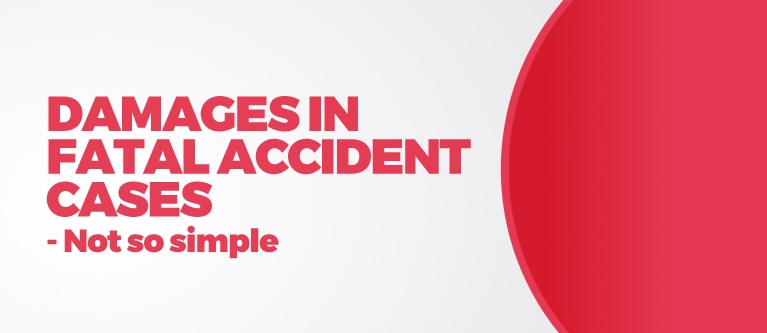by Howard Nulty
Cases involving fatalities are looked at by most solicitors as being personal injury cases. In reality they are a lot different and any link between able to deal with a personal injury case and the ability to deal with a fatal accident is tenuous to say the least.
The first consideration is that the person involved is not able to give you a statement. Families looking for answers are often frustrated by the lack of information from the police, who of course have to make a thorough enquiry.
Where someone has died in accidental circumstances then the Coroner for the area where the accident happened will open an Inquest very soon after the death and adjourn it to a date when more and better information is available. A competent solicitor should arrange for representation at the Inquest the cost of which is usually paid for as part of the claim for damages.
Whilst waiting on information the persons who are able to claim need to be sorted out. There are basically two claims one being on behalf of the estate and the other being on behalf of dependents of the deceased.
The Estate Claim
The Estate Claim is one that is taken out either by the Executors (if there is a will) or by the Administrators ( if there is no will).
The Estate Claim is for any claim that was with the deceased at the point that he died. This might be damages for pain and suffering, loss of earnings and care. In addition the funeral and testamentary expenses are part of this claim.
A Claim For Dependency
One claim is brought for any dependents. Those entitled are the spouse (be it common law or married), parents and some more distant relatives. Anyone seeking to claim a dependency must show reliance on the deceased be it financial or otherwise for monies worth. For instance someone being cared for by the deceased would have a claim.
The damages are worked out by calculating how much annually was being relied upon from the deceased and then that sum is multiplied by a figure representing the expected life expectancy of the deceased and also the claimant. For instance if the deceased was unwell and not likely to have lived long in any event then the number of years will be reduced accordingly. The same applies if the claimant was aged at the time of the death then the claim would be reduced accordingly.
Bereavement damages
The Fatal Accidents Act 1976 provides for a category of relatives that are entitled to a payment upon death. These are husbands and wives Common law or married) and parents.
The sum is fixed by Statute but varied by statutory instrument and currently stands at £12,980. https://www.legislation.gov.uk/ukpga/1976/30/section/1A.
Damages For Right to Life
Article 2 of the European Convention on Human Rights suggests that all are entitled to have their life protected by law. Where the proposed defendant is the State or an emanation of the State eg the NHS or a Local Authority then a claim for damages can be made under this heading.
It can be seen that the options available and the calculations necessary mean that a fatal accident case needs an experienced solicitor to deal with them. It is far from straight forward.


